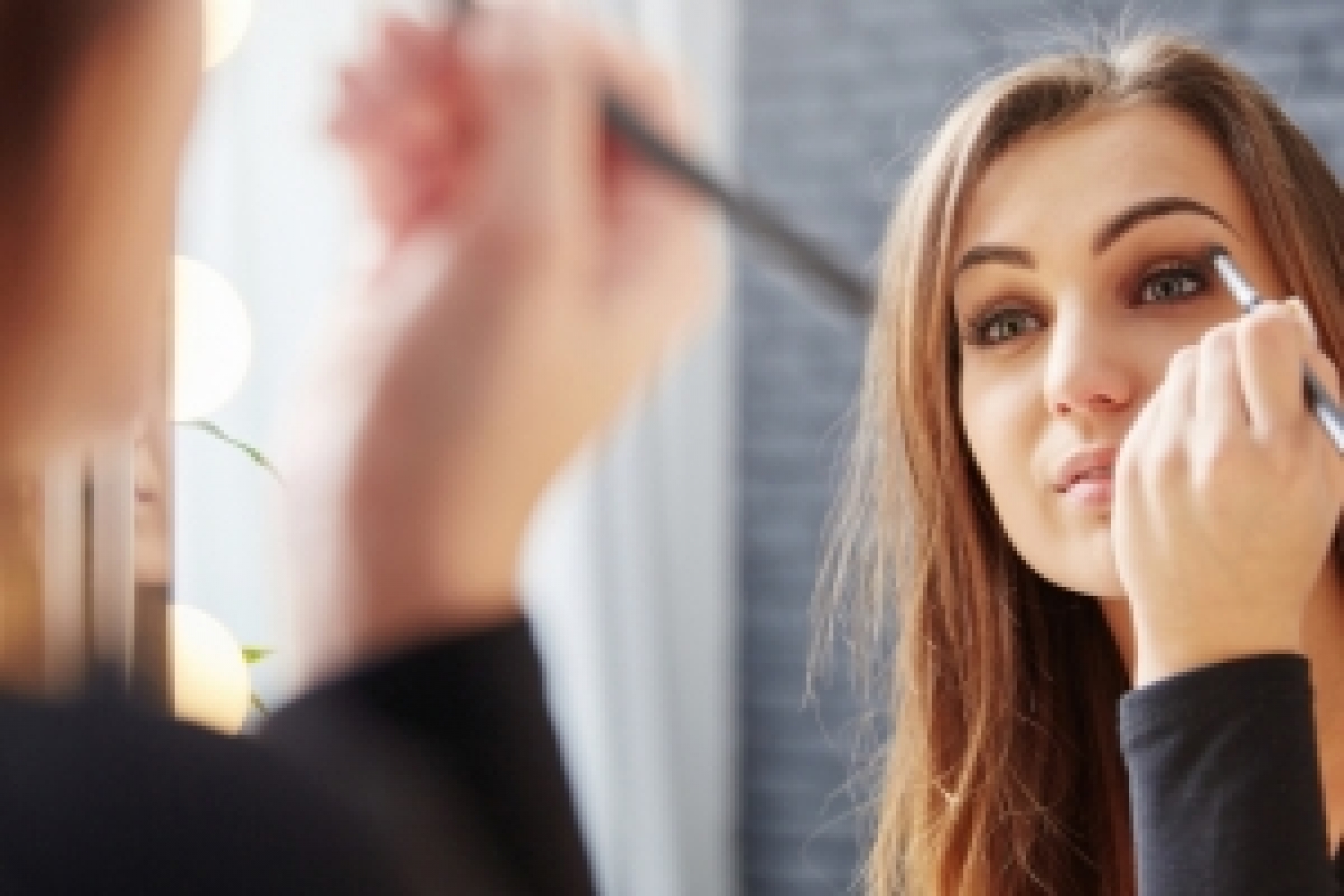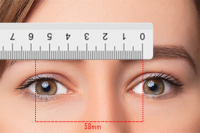Dodge Infection
Developing an eye infection defeats the purpose of wearing makeup in the first place. After all, there’s nothing pleasant about a puffy, red eye. You can avoid this by following some basic rules and applying common sense to your makeup routine.
If cosmetics are used for longer than recommended, bacteria and fungi can grow. Cosmetics should be discarded and replaced according to manufacturer recommendations—commonly every three months for mascara.2 Write the purchase date on the packaging to keep track of the dates.
In addition, clean your brushes and other applicators regularly to remove pathogens. And if you’ve had an eye infection, discard and replace all eye makeup to prevent reinfection.
Sharing cosmetics, including the use of tester products in stores, is another potential avenue for introducing infection. One of the most common infections transmitted via makeup is conjunctivitis, which is inflammation of the membrane that covers the inner surface of the eyelid and the outer surface of the eye. Using disposable applicators may reduce the risk of transmission; however, bacteria and fungi may still be present in the cosmetic container if it is not wiped clean between uses.
Proper storage can also contribute to product safety. The FDA recommends storing all eye cosmetics at temperatures below 85˚F, as products stored at higher temperatures are more susceptible to deterioration of the preservative.1
Two more important tips for preventing eye infections: Don't "top-off" dry mascara with water and don't use lip liners on your eyes.2
Be Wary of Allergies
Not all reactions to makeup are caused by infection. Sometimes, allergies can be the culprit. Common allergens found in cosmetics include nickel, iron oxide, and ingredients found in preservatives and fragrances.3
Also, don’t rely on the term "hypo-allergenic" —this label is no guarantee that the product is allergen-free.2 Try to introduce new cosmetic products one at a time to determine your sensitivity to specific components, especially if you are prone to allergies.2
Think Twice to Avert Injury
Applying makeup around the eyes requires a steady hand. Mechanical injury to the eye can result in corneal abrasions, or worse. For this reason, you should never put on makeup in a moving vehicle—especially if you’re the one driving.
You can also avoid tempting fate by wearing makeup only on the distal, or outside, lash margin—and never inside, where you might introduce bacteria to the ocular surface.2 Placing makeup along the inside of the lash margin also can plug up your glands.2
Focus on Contact Lens Cleanliness
When you apply makeup before putting on contact lenses, some of the oils or bits of makeup can smudge or get stuck on the lens. For this reason, it’s best to wash your hands, put in your contact lenses, and then apply makeup as a final step.2 There is one exception to this process: If you wear hard, or rigid, contacts, insert them after makeup application, but use caution to avoid smearing the lens during the process.2
Also, consider the types of eye makeup you use. Even for non contact lens wearers, glittery or metallic eye shadows should be avoided since it can get trapped under lenses.2
Finally, whatever makeup you put on needs to come off at bedtime. Depending on what type of makeup you use, ordinary soap and water may not do the trick—especially on mascara. When mascara dries, it gets stiff and can cause the natural eyelash to break, possibly leading to lid disease, ocular surface disease, and contact lens intolerance.2
Steer clear of these beauty regimen roadblocks by thoroughly cleansing your face at night. Simple precautions to maintain eye health while using cosmetics can help keep your eyes not only looking great, but also feeling and functioning at their best.
References
1. US Food and Drug Administration. Eye cosmetic safety. December 2006. Available from: https://www.fda.gov/Cosmetics/ProductsIngredients/Products/ucm137241.htm [Accessed 20 May 2017].
2. Autry J, Shechtman D, Cotter S, Sclafani L. Recognize Distinctions in Women's Eye Health. Review of Optometry. May 2015.
3. Torres F, das Gracas M, Melo M, Tosti A. Management of contact dermatitis due to nickel allergy: an update. Clin Cosmet Investig Dermatol. Apr 2009;2:39-48.







